Last updated on
Discover the truth about kitchen trash bags and their recyclability, as we delve into the world of waste management and its environmental impact.
Kitchen trash bags are a staple in every household, making it easy to dispose of waste and keep our homes clean. But have you ever wondered if these bags are recyclable? As we become more conscious about the impact of our daily choices on the environment, it’s important to know what we can and cannot recycle.
In this article, we’ll explore whether kitchen trash bags can be recycled and provide some tips on how to reduce waste in your home. So let’s dive in!
What's Inside
Types of Kitchen Trash Bags
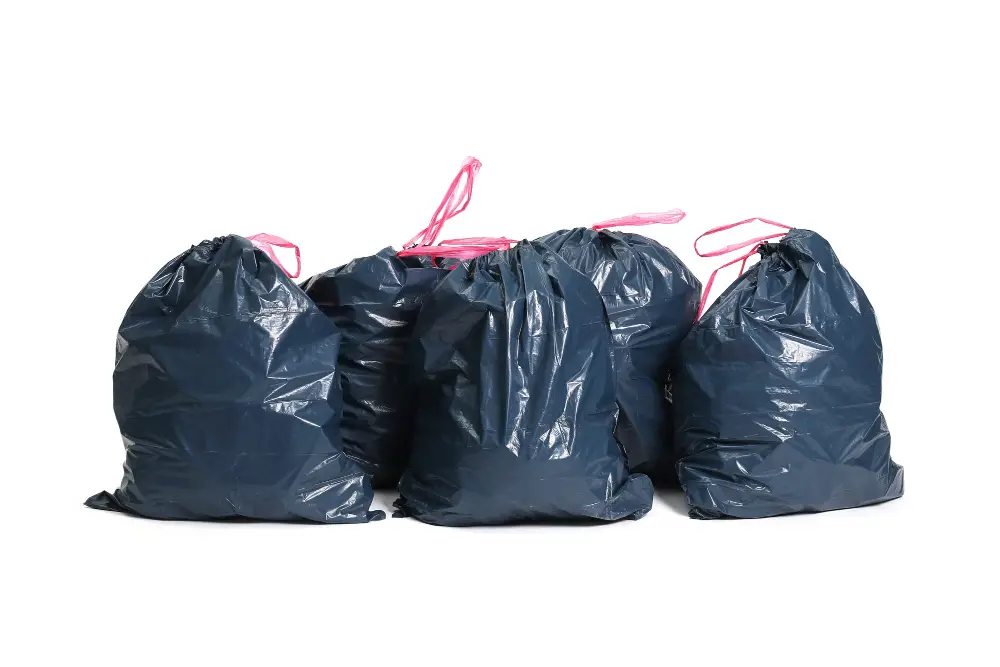
When it comes to kitchen trash bags, there are several types available on the market. The most common ones include drawstring bags, flap-tie bags, and odor-control bags.
Drawstring trash bags have a string closure that makes them easy to tie up and carry out of the house. Flap-tie garbage bags have flaps at the top that can be tied together for secure disposal.
Odor-control garbage bag varieties come with added features like scents or activated carbon filters designed to neutralize unpleasant smells from your waste.
It’s important to note that different types of kitchen trash bag materials may affect their recyclability status. Some materials used in making these products are not accepted by recycling facilities due to contamination concerns or lack of demand for recycled material made from those specific components.
Materials Used in Trash Bags
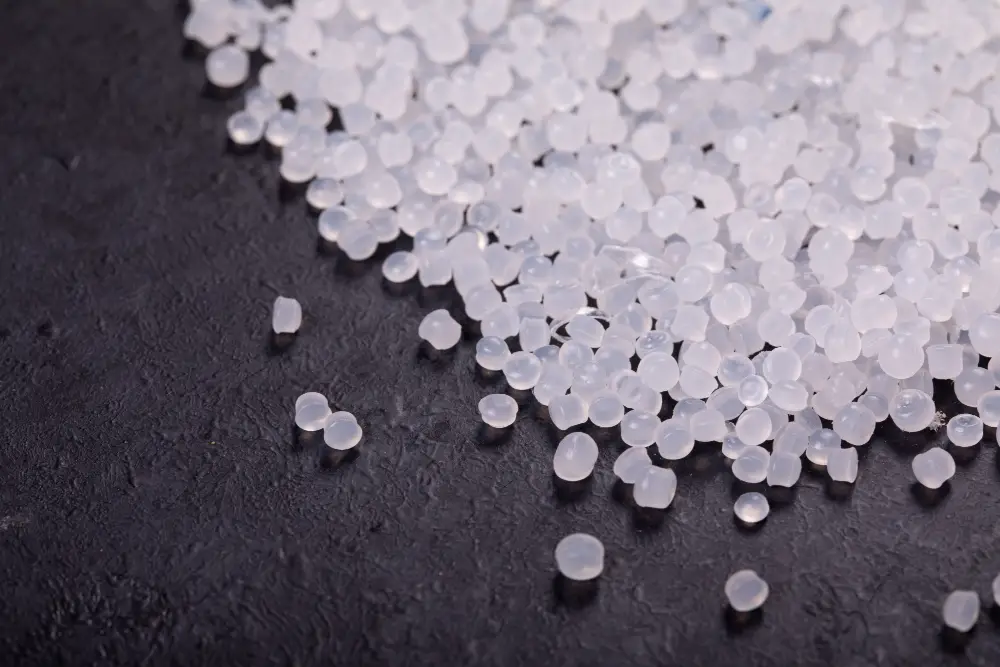
These materials are derived from petroleum and natural gas. HDPE is the most commonly used material for trash bags because it’s strong, durable, and puncture-resistant.
LDPE is more flexible than HDPE but not as strong. LLDPE combines the best qualities of both HDPE and LDDE.
The type of material used in a trash bag affects its strength, thickness, flexibility, transparency level or coloration. It also determines whether or not it can be recycled.
Understanding Recyclability
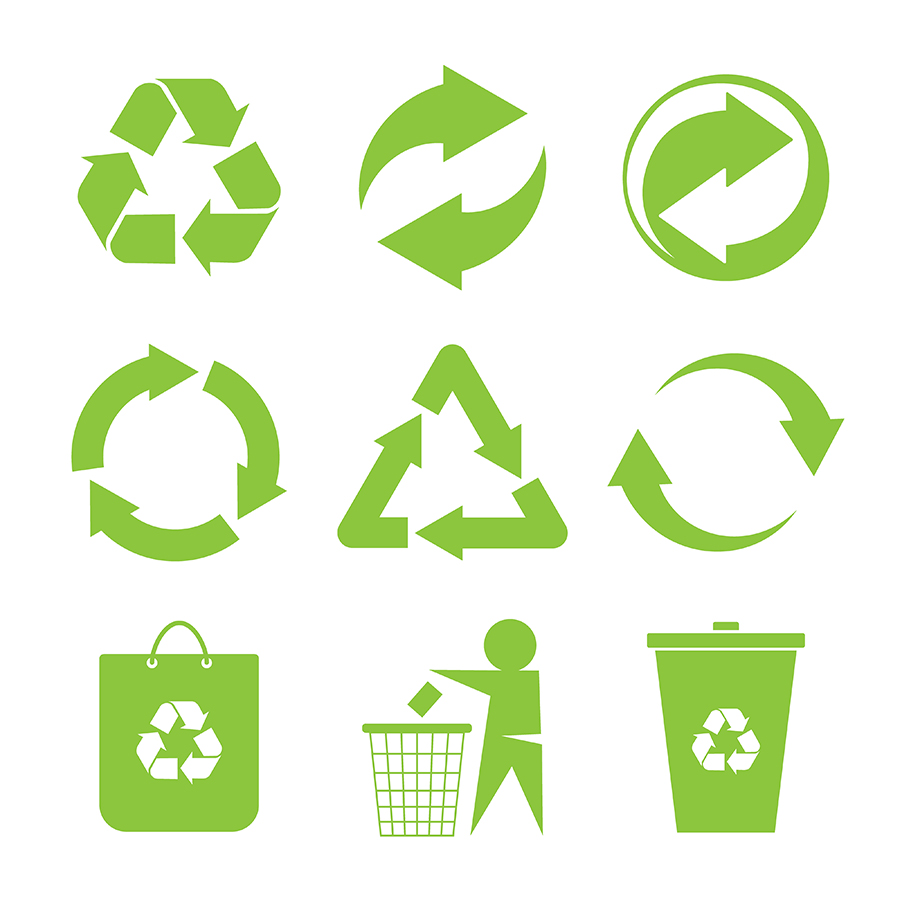
Recycling is the process of converting waste materials into new products, and not all materials can be recycled. The most common types of recyclable materials include paper, cardboard, glass bottles and jars, aluminum cans and foil, steel cans and aerosol containers.
To determine if a material is recyclable or not depends on several factors such as its composition (what it’s made from), how easy it is to separate from other waste streams (like food scraps), its size/shape/weight/volume ratio in relation to transportation costs for recycling facilities that handle these items.
In general terms though: if something has been designed with recycling in mind – meaning that there are established markets for those specific types of plastics or metals: then chances are good they’ll be accepted by your local recycler. However; some items like plastic bags pose challenges because they get tangled up in machinery at sorting facilities which can cause damage or even shut down operations temporarily while workers untangle them manually.
Are Trash Bags Recyclable?
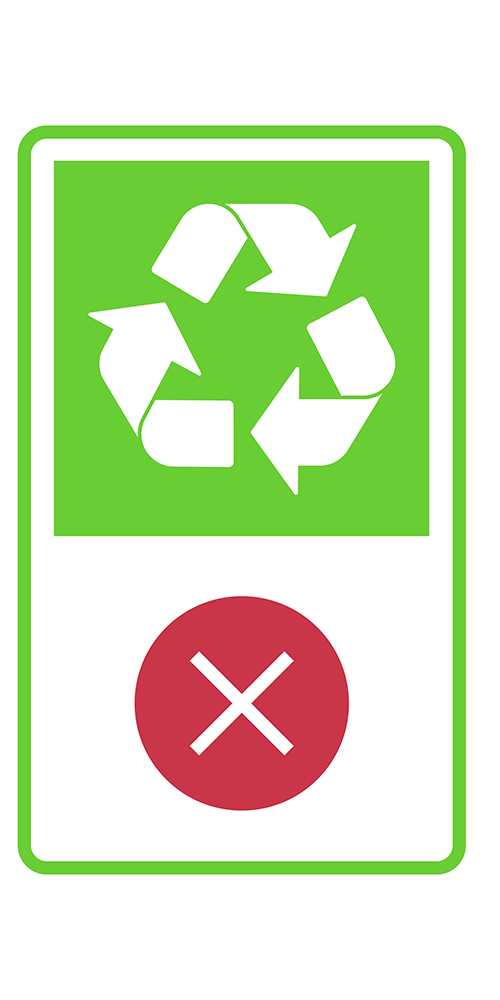
Some can be easily recycled, while others pose a challenge due to their composition or contamination. Trash bags fall into the latter category and are generally not recyclable through curbside programs.
The reason for this is that most trash bags are made of low-density polyethylene (LDPE), which is a type of plastic that cannot be processed by traditional recycling facilities. Trash bags often contain food waste or other contaminants that can compromise the quality of other recyclables in the same batch.
However, there may still be options for recycling your used trash bags if you’re willing to put in some extra effort. Some companies offer specialized programs where you can send in your clean and dry LDPE plastics for processing into new products such as composite lumber or park benches.
Alternatively, some local drop-off centers may accept LDPE plastics along with other types of plastic film packaging like grocery bags and bubble wrap. It’s important to check with your local facility first before dropping off any materials as guidelines vary depending on location.
Can You Recycle Trash Bags?
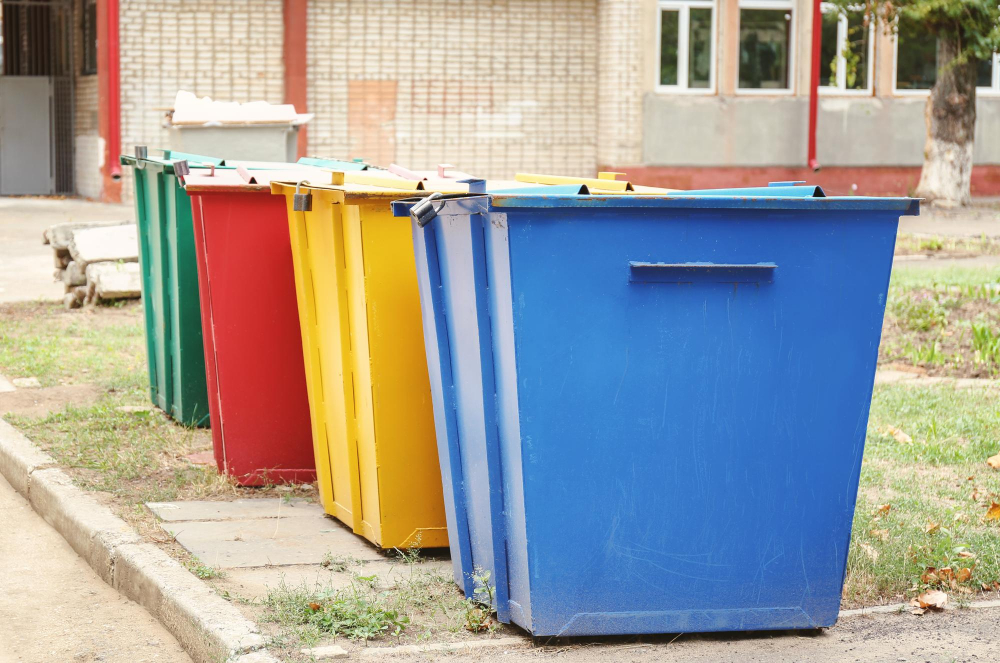
While some items can be easily recycled, others require special handling or cannot be recycled at all. So where do kitchen trash bags fall on this spectrum? Unfortunately, most curbside recycling programs do not accept plastic bags of any kind – including trash bags – as they can get tangled in the machinery and cause damage to the equipment.
However, that doesn’t mean you should toss your used trash bags into the regular garbage bin without a second thought. Some grocery stores and retailers have collection bins for plastic film (which includes shopping and produce bags), so you may be able to drop off your used kitchen trash bag there instead of throwing it away with other non-recyclable waste.
It’s important to note that even if a particular brand or type of kitchen trash bag is labeled as “recyclable,” it does not necessarily mean that your local recycling program will accept them. Always check with your municipality’s guidelines before attempting to recycle any material.
Recycling Symbols On Trash Bags
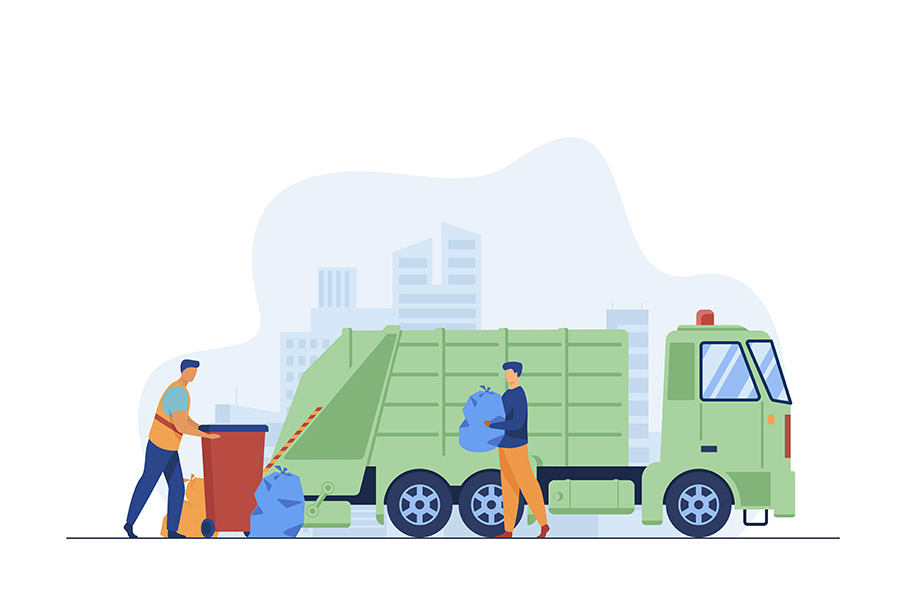
The most common symbol you’ll see is the chasing arrows triangle with a number inside. This number indicates what type of plastic was used to make the bag and whether or not it’s recyclable.
Unfortunately, just because a bag has this symbol doesn’t mean that it’s accepted by all recycling programs. Some facilities only accept certain types of plastics or require that bags be clean and free from any food waste before they can be recycled.
It’s important to check with your local recycling program for specific guidelines on what types of plastic are accepted in your area. If you’re unsure about whether or not a particular trash bag is recyclable, erring on the side of caution and throwing it away in regular garbage may be best.
While recycling symbols can provide some guidance when deciding how to dispose of kitchen trash bags properly; they don’t always tell us everything we need to know about their recyclability status.
The Recycling Process
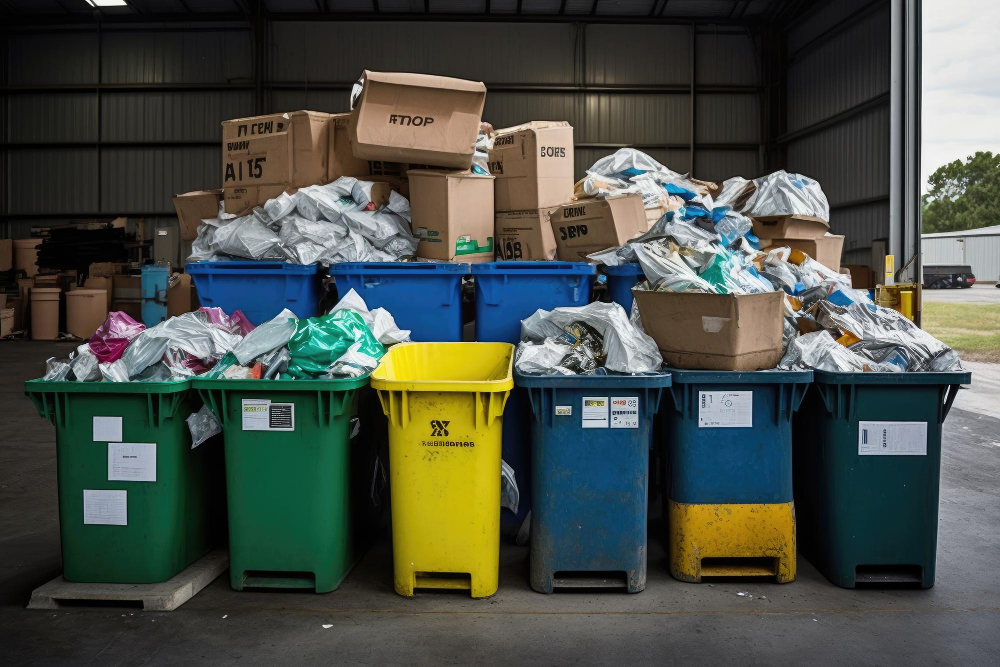
Recycling facilities use a combination of machines and manual labor to sort through materials and separate them into different categories. The first step in the recycling process is sorting, where workers remove any contaminants or non-recyclable items from the stream of materials.
Next comes shredding or grinding, which breaks down larger items like plastic bottles or cardboard boxes into smaller pieces that can be easily processed. These small pieces are then washed and dried before being melted down into pellets that can be used to create new products.
It’s worth noting that not all types of plastics can be recycled together due to differences in their chemical makeup. This means it’s essential to follow local guidelines for what types of plastics are accepted for recycling in your area.
Understanding how the recycling process works helps us make informed decisions about what we throw away and how we dispose of our waste responsibly.
Recycling Challenges

One of the biggest challenges with recycling kitchen trash bags is that they are often made from a combination of materials, such as plastic and paper. These mixed-material bags can be difficult to recycle because they require specialized processing equipment.
Another challenge with recycling trash bags is contamination. If you put non-recyclable items in your bin or bag, it can contaminate the entire batch of recyclables and render them unusable.
This means that even if your kitchen trash bag itself is recyclable, its contents may not be.
Local regulations on what can and cannot be recycled vary widely across different regions. Some areas have strict guidelines on what types of plastics are accepted for recycling while others do not accept any at all.
Local Recycling Guidelines
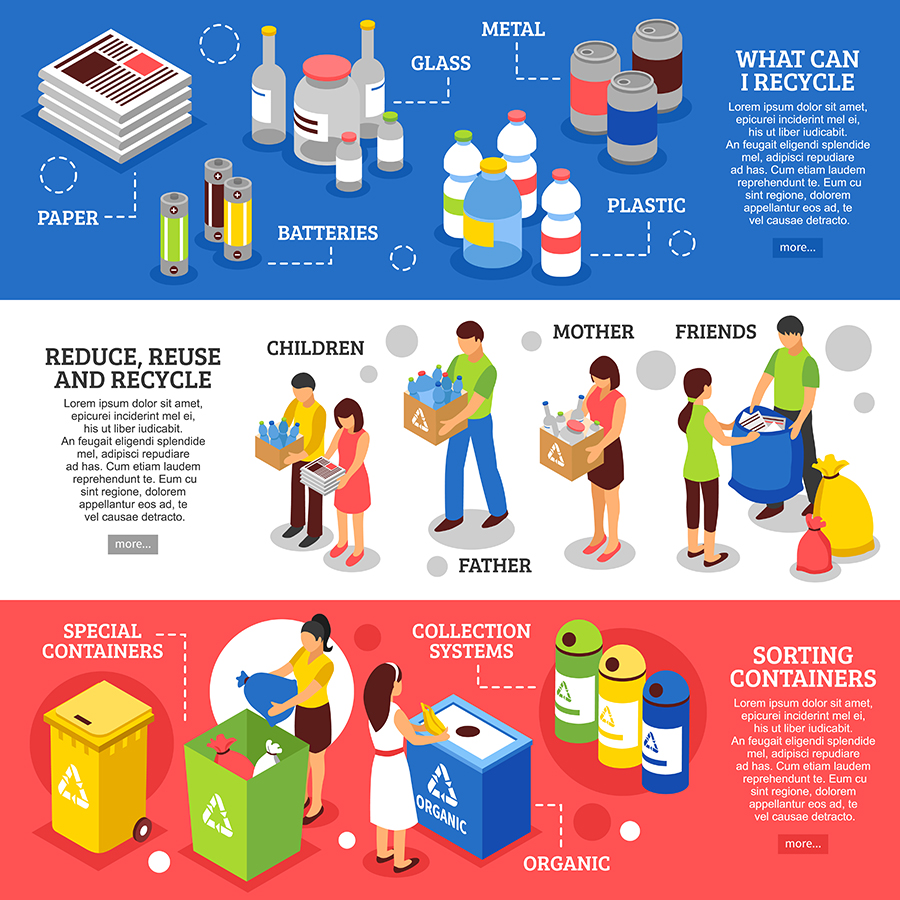
Before you toss your kitchen trash bags into the recycling bin, make sure you check with your local waste management facility or visit their website for specific guidelines on what can and cannot be recycled in your area.
Some cities may accept certain types of plastic bags, while others do not. Some facilities require that all recyclables be clean and dry before being placed in the bin.
Others may have restrictions on how much plastic they can process at a time.
By following these local recycling guidelines, we can ensure that our efforts are not wasted by contaminating the entire batch of recyclables with non-recyclable materials like dirty kitchen trash bags.
So take some time to research what is accepted in your area before tossing anything into the recycle bin.
Why Is It Important To Know If You Can Recycle Trash Bags?
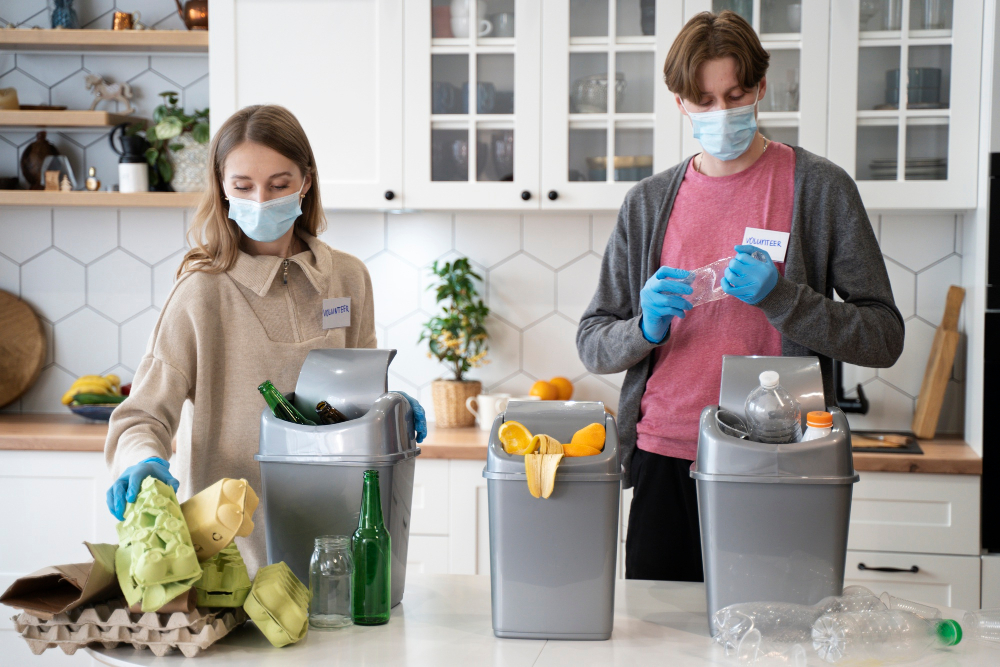
Firstly, it helps reduce the amount of waste that ends up in landfills. When we recycle, we give materials a second life and prevent them from taking up space in already overflowing landfills.
Secondly, recycling saves energy and resources needed to produce new products from raw materials. By reusing existing materials, we conserve natural resources like water and oil while reducing greenhouse gas emissions associated with manufacturing processes.
Moreover, understanding what can be recycled also helps us make informed choices when shopping for household items such as trash bags. Opting for recyclable or biodegradable options reduces our carbon footprint while supporting sustainable practices.
Lastly but most importantly knowing if your kitchen trash bag is recyclable will help you avoid contaminating the recycling stream with non-recyclables which could lead to entire batches being rejected by recycling facilities causing more harm than good to the environment.
Impact On Landfills
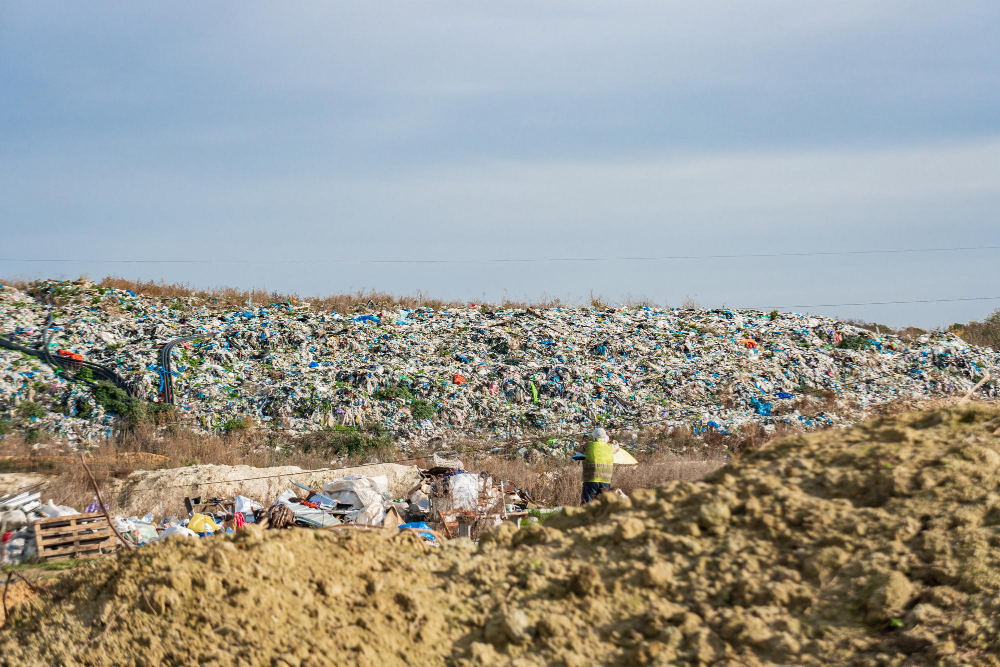
When we throw away non-recyclable materials, they end up in landfills where they take years to decompose. Plastic waste, including trash bags, can take hundreds of years to break down completely and release harmful chemicals into the environment during this process.
Moreover, when garbage trucks compact waste in the landfill site for more space efficiency; it creates an anaerobic environment that slows down decomposition and produces methane gas – a potent greenhouse gas that contributes significantly to climate change.
Are Trash Bags Bad for the Environment?
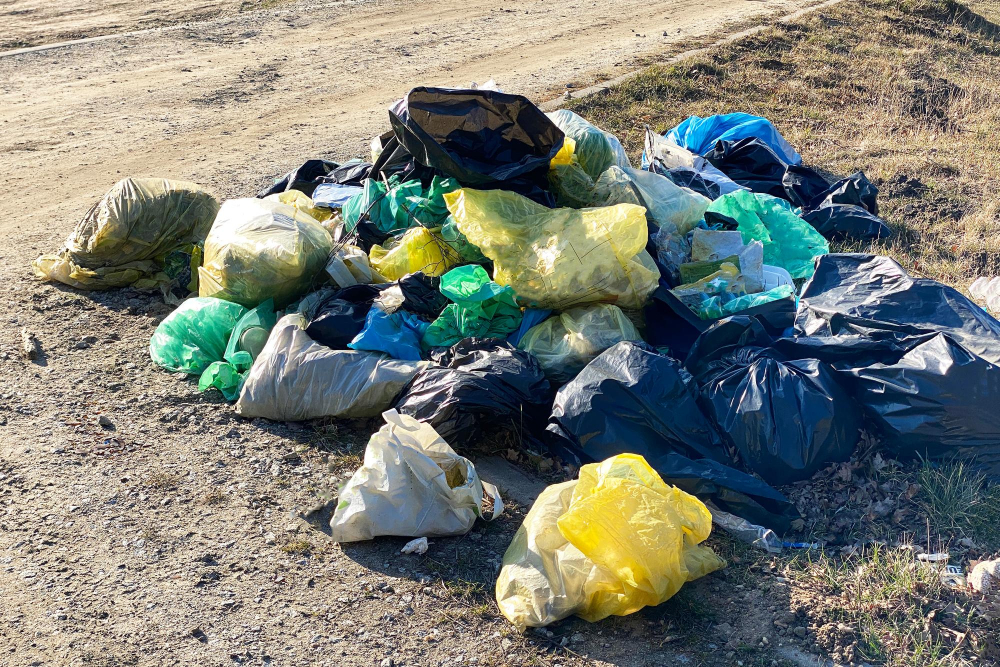
The truth is that traditional plastic trash bags can take hundreds of years to decompose in landfills, contributing to the growing problem of plastic pollution. As these bags break down into smaller pieces called microplastics, they release harmful chemicals and toxins into the soil and waterways.
Moreover, when trash bags end up in recycling facilities mixed with other recyclable materials like paper or cardboard boxes, it can contaminate entire batches making them unrecyclable. This leads to more waste being sent directly to landfills instead of being repurposed.
While some companies have introduced biodegradable or compostable options for kitchen trash bags as an alternative solution for reducing environmental harm caused by traditional plastics; however not all communities have access or infrastructure available for proper disposal methods which makes it difficult even if you use eco-friendly alternatives.
Biodegradable Vs. Recyclable
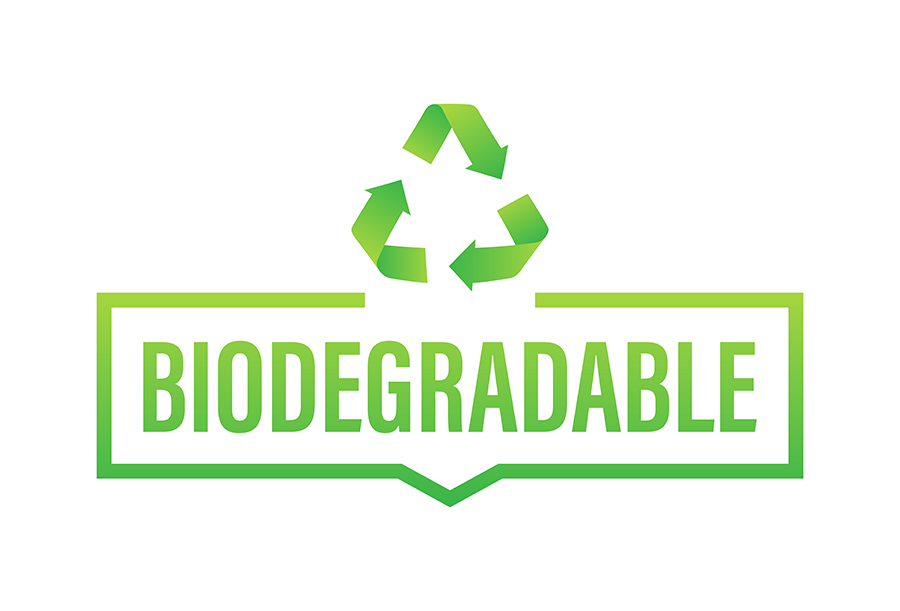
While both sound like they’re good for the environment, they actually refer to different things.
Biodegradable refers to materials that can break down naturally over time without leaving any harmful residue behind. These materials can be made from plant-based sources or even animal byproducts.
However, just because something is biodegradable doesn’t mean it’s always the best option for the environment.
Recyclable refers to materials that can be processed and reused in new products after being collected through a recycling program. Recycling helps reduce waste in landfills and conserves natural resources by reducing the need for virgin raw materials.
So how do these terms relate back to kitchen trash bags? Some trash bags may claim to be “biodegradable,” but this doesn’t necessarily mean they’re better than traditional plastic bags when it comes to environmental impact. In fact, some studies have shown that certain types of biodegradable plastics may not break down as quickly as advertised or could release harmful chemicals into soil or waterways during decomposition.
On the other hand, many traditional plastic trash bags are technically recyclable – meaning you could potentially recycle them if your local recycling program accepts them (check with your municipality). However, due their thinness and lack of rigidity compared with other plastics such as bottles or containers; most curbside programs don’t accept them since sorting machines cannot handle small items like these properly.
Compostable Vs. Recyclable
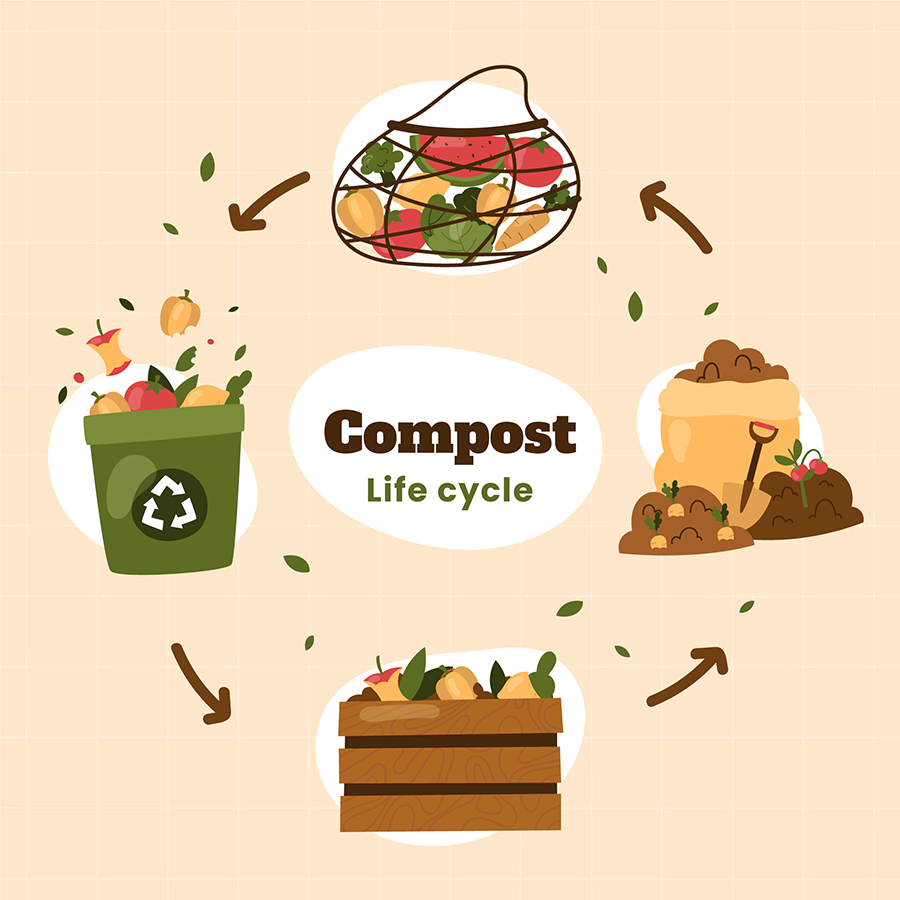
While both aim to reduce the amount of waste sent to landfills, they have different end goals.
Compostable materials break down into natural elements when exposed to air, water, and microorganisms. They can be turned into nutrient-rich soil for plants or used as a renewable energy source through anaerobic digestion.
Recyclable materials are processed so that they can be reused in new products. The recycling process involves breaking down the material into its raw form before being made into something else.
It’s important to note that not all compostables are recyclables and vice versa. For example, some biodegradable plastics may break down quickly but cannot be recycled due to their chemical composition or lack of infrastructure for processing them.
Understanding the difference between composting and recycling is crucial in making informed decisions about waste disposal methods.
Alternatives to Traditional Trash Bags
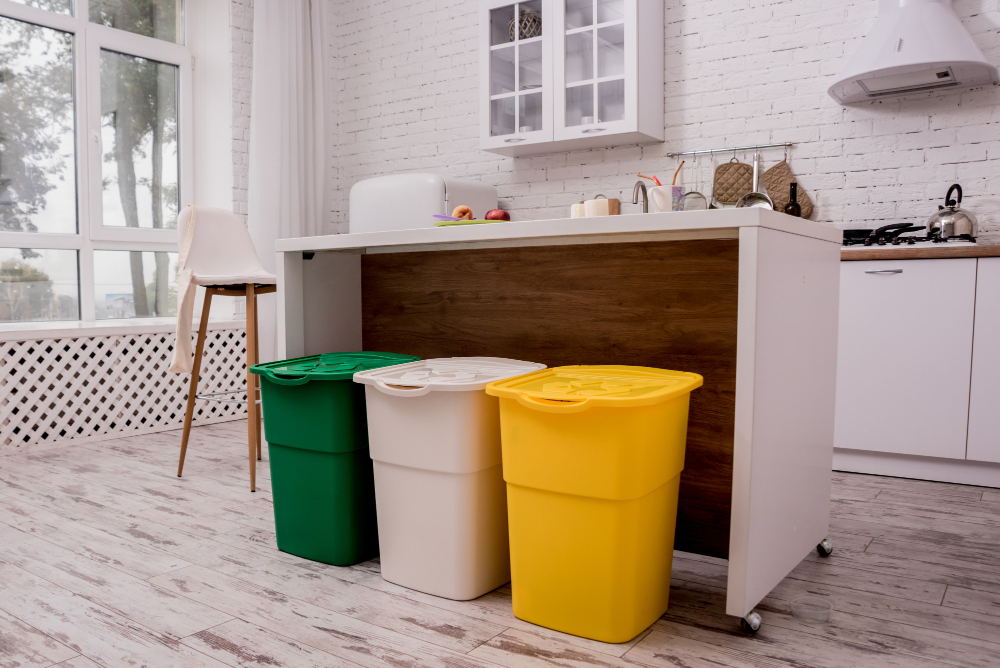
One of the easiest ways to reduce waste is by using reusable cloth bags or containers instead of disposable plastic ones. These can be washed and reused multiple times, reducing the amount of waste that ends up in landfills.
Another option is compostable trash bags made from plant-based materials like cornstarch or potato starch. These types of bags break down naturally over time and can be safely added to your home compost pile.
You could also consider repurposing old newspaper as a liner for your kitchen bin or use paper grocery sacks as a makeshift garbage bag.
While these alternatives may require some adjustments in your daily routine, they offer an eco-friendly solution that reduces waste and helps protect our environment.
Reusable Bag Options
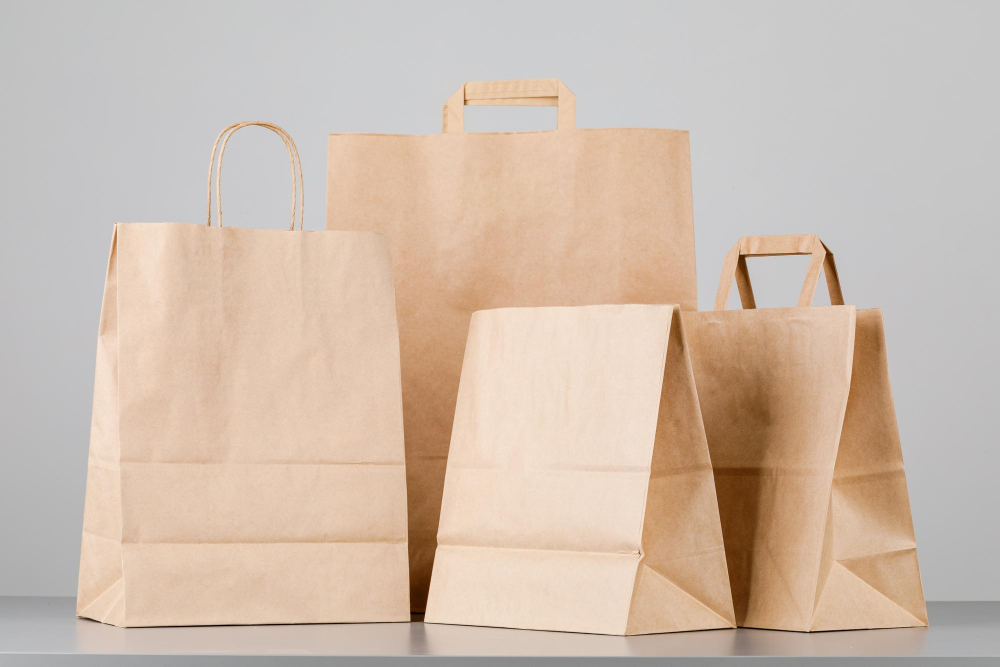
These bags can be washed and used multiple times, reducing the amount of waste that ends up in landfills. Reusable trash bags come in different sizes and materials such as cotton, nylon or mesh.
Some brands even offer compostable options made from plant-based materials like cornstarch.
Reusable grocery shopping bags can also double as garbage liners for smaller bins around your home. This way you don’t have to buy separate plastic garbage liners which will eventually end up in landfills.
While reusable bag options may cost more upfront than traditional plastic or paper products, they save money over time by eliminating the need to constantly purchase new disposable items.
How to Reduce Waste
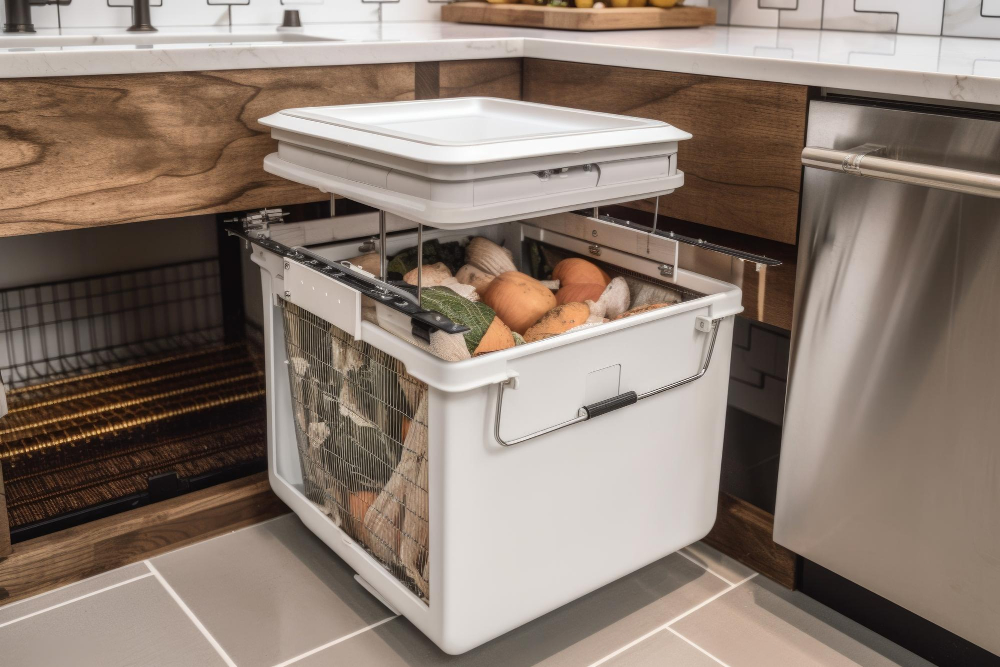
By making small changes in our daily habits, we can significantly reduce the amount of trash that ends up in landfills and oceans. Here are some tips on how to reduce waste:
1. Use reusable bags: Instead of using single-use plastic bags, opt for reusable cloth or mesh bags when shopping.
2. Say no to straws: Plastic straws are one of the most common items found during beach cleanups and harm marine life.
Skip the straw or bring your own metal or bamboo straw.
3. Bring your water bottle: Invest in a durable water bottle that you can refill instead of buying bottled water.
4. Compost food scraps: Food scraps make up a significant portion of household waste but can be composted instead.
5. Buy in bulk: Buying products like grains, nuts, and spices from bulk bins reduces packaging waste while saving money too!
Break Up With Single-Use Plastics

One way to reduce waste is by using reusable bags instead of disposable ones. Reusable bags come in a variety of materials such as cotton, canvas, and mesh and can be used for grocery shopping or carrying items around town.
Another option is compostable or biodegradable trash bags made from plant-based materials that break down naturally over time. These types of trash bags are becoming increasingly popular as people look for ways to reduce their environmental footprint.
By breaking up with single-use plastics like traditional kitchen trash bags, we can make a positive impact on the environment while also reducing waste in our homes.
How to Get Rid of Your Trash Bags
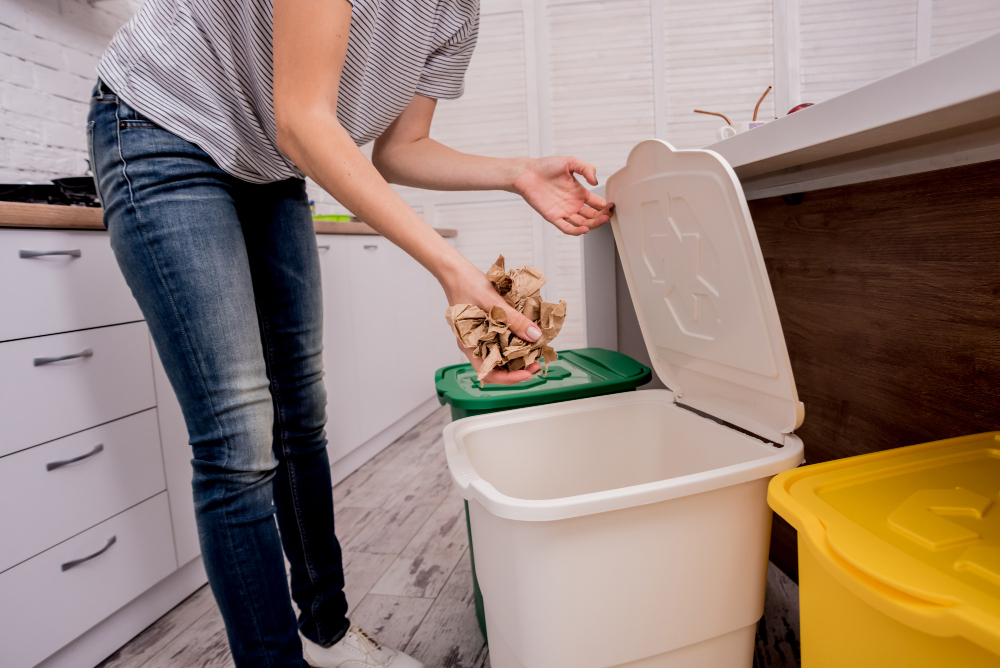
If the bags are not recyclable in your area, they should be thrown away with regular household waste. However, there are a few things to keep in mind when getting rid of your trash bags.
Firstly, make sure that all the contents have been removed from the bag before throwing it away. This ensures that any recyclable materials can be sorted and processed correctly.
Secondly, try to avoid overfilling or packing too much into each bag as this can cause tears and leaks which may result in spillage during transportation or at landfill sites.
Lastly, consider using biodegradable or compostable options if available as these will break down naturally over time without causing harm to the environment.
A Final Word On “Are Garbage Bags Recyclable?”
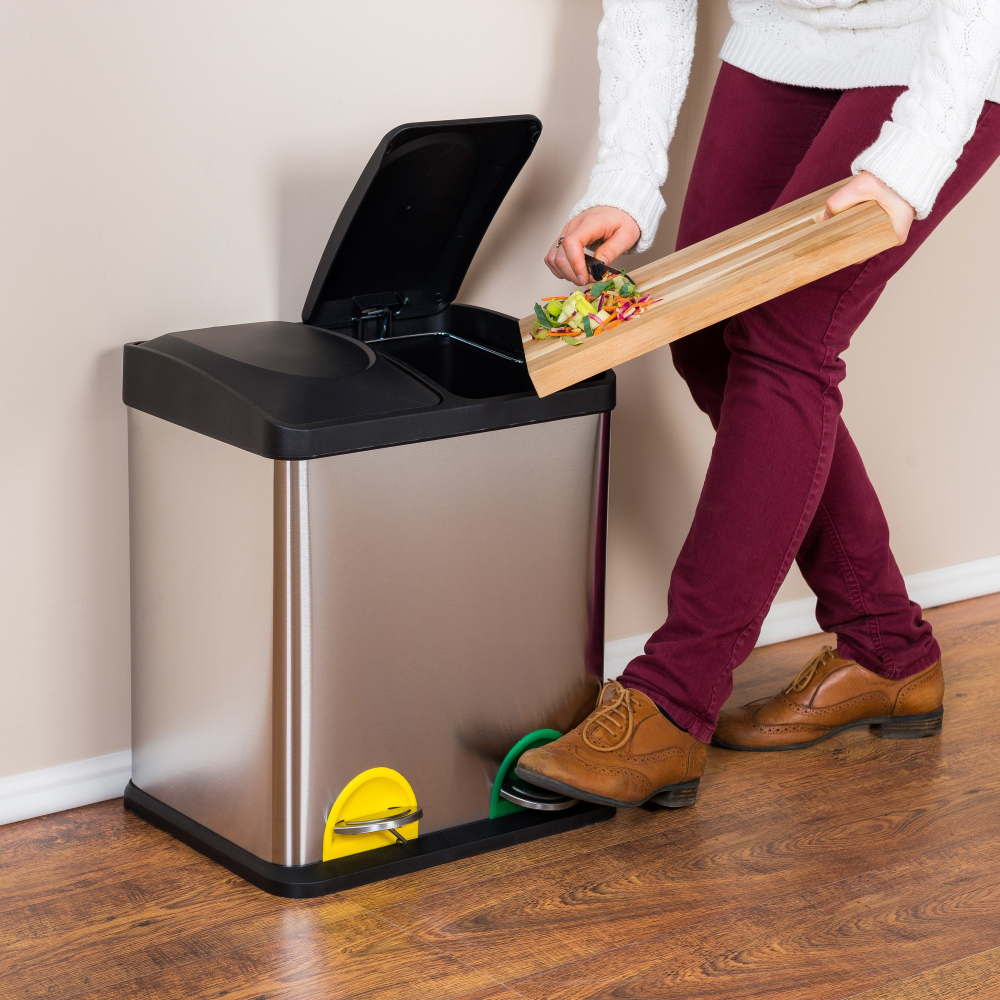
While some types of trash bags can be recycled, others cannot due to their composition or contamination with food waste. It’s important to check your local recycling guidelines and look for the appropriate recycling symbols on your trash bags before tossing them in the bin.
If you’re looking for ways to reduce waste and minimize your environmental impact, consider switching from traditional plastic garbage bags to reusable options like cloth or mesh produce bags. You can also try composting food scraps instead of throwing them away in a bag.
Remember that every small change we make towards reducing our waste adds up over time and has a positive impact on our planet. So next time you reach for that kitchen trash bag, think twice about its recyclability and choose wisely!
FAQ
Are glad kitchen trash bags recyclable?
Yes, glad kitchen trash bags are recyclable as they are accepted in applicable Municipal Recycling, Yard Waste and Clear Trash programs.
Can you put bin bags in recycling?
No, you cannot put bin bags in recycling, as black bin bags cannot be recycled and should not be placed in your recycling bin.
Do plastic food bags get recycled?
Yes, plastic food bags can be recycled at specific out-of-home recycling points.
What happens to plastic trash bags?
Plastic trash bags break down into toxic particles that contaminate soil and waterways, and enter the food chain when accidentally ingested by animals.
What types of plastic are recyclable for kitchen garbage bags?
Recyclable types of plastic for kitchen garbage bags include high-density polyethylene (HDPE) and low-density polyethylene (LDPE).
Are there eco-friendly alternatives to traditional plastic trash bags?
Eco-friendly alternatives to traditional plastic trash bags include biodegradable, compostable, and reusable options made from materials like cornstarch and recycled plastics.
How can I minimize my environmental impact while using kitchen trash bags?
To minimize your environmental impact while using kitchen trash bags, opt for biodegradable or compostable bags and reduce waste by reusing and recycling when possible.




